




In many UK households, it is common to find washing machines placed in the kitchen rather than in a separate laundry room. This placement might seem unusual to those from other countries, where the appliance is typically kept in a dedicated laundry area. However, there are historical, architectural, and practical reasons behind this tradition in the UK.
One of the main reasons for the presence of washing machines in the kitchen is the limited space available in UK homes. Compared to other countries, houses in the UK tend to be smaller, especially in urban areas. This lack of space means that homeowners often have to make practical choices when it comes to the placement of appliances.
Another factor influencing the placement of washing machines in the UK is the historical development of housing. Many older homes in the UK were built without a dedicated laundry area. In the past, washing clothes was often done by hand, and having a designated space for laundry was not a priority. As washing machines became more common in households, it was natural for them to be placed in the kitchen, where the necessary plumbing and electrical connections were already in place.
Additionally, placing washing machines in the kitchen provides convenience in terms of water and drainage connections. Kitchens are typically equipped with plumbing fixtures, such as sinks and taps, which make it easier to connect the washing machine to the water supply. Similarly, the presence of a sink allows for quick and easy drainage of the machine’s wastewater.
Overall, the placement of washing machines in the kitchen in the UK can be attributed to a combination of limited space, historical factors, and practicality. While it might be different from the norms in other countries, it has become a longstanding tradition that continues to be followed in many UK households.
The Placement of Washing Machines

The placement of washing machines in the UK is often found in the kitchen. This is quite different from other countries where washing machines are typically placed in separate laundry rooms or bathrooms. There are several reasons why washing machines are usually in the kitchen in the UK:
Space Efficiency
One of the main reasons for this placement is the limited size of British homes. Compared to other countries, homes in the UK tend to have smaller floor plans. As a result, there may not be enough space for a dedicated laundry room or separate area for a washing machine. Placing the washing machine in the kitchen allows for efficient use of space, as the kitchen is often the central hub of the home.
Plumbing Infrastructure
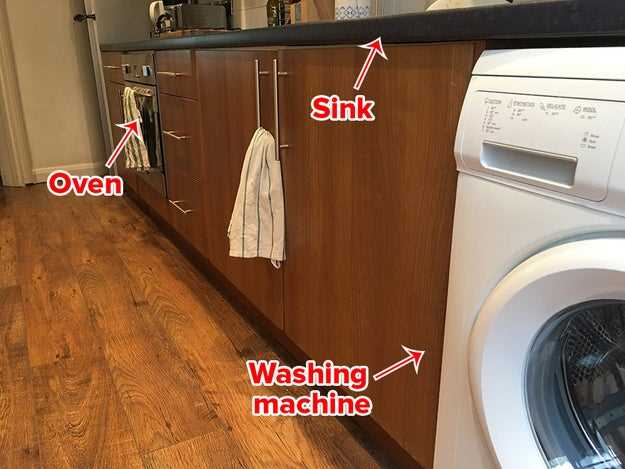
Another factor contributing to this placement is the existing plumbing infrastructure. Since the kitchen is already equipped with water supply and drainage systems for sinks and dishwashers, it is relatively easy to connect a washing machine to the existing plumbing lines. This eliminates the need for expensive and time-consuming plumbing modifications that may be required in other parts of the house.
Tradition and Convenience
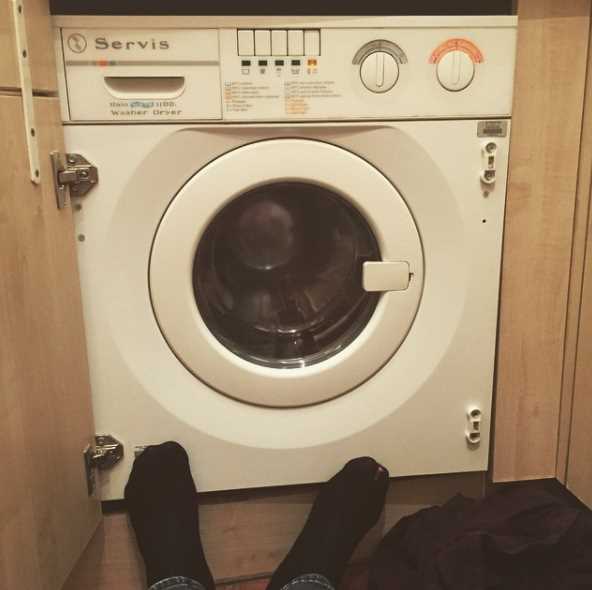
Additionally, the placement of washing machines in the kitchen has become a tradition in the UK. For many generations, households have been used to having their washing machine conveniently located in the kitchen. This has become the norm and is considered a convenient arrangement for carrying out laundry tasks while also being able to attend to other kitchen activities.
Table for Illustration
| Pros | Cons |
|---|---|
| Space efficient | No separate laundry room |
| Easier plumbing installation | Potential noise and vibration |
| Convenient for multitasking | Potential clutter in the kitchen |
Overall, the placement of washing machines in the kitchen in the UK is a result of space limitations, existing plumbing infrastructure, and traditional convenience. While it may have its drawbacks, this arrangement has become deeply ingrained in British households.
Tradition and Practicality
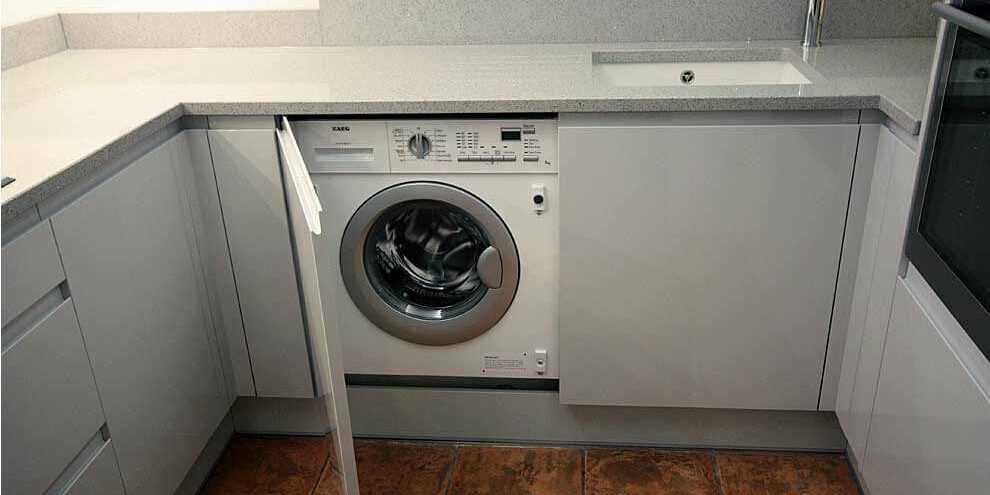
The tradition of having washing machines in the kitchen can be traced back to historical and practical reasons. In the past, houses in the UK had limited space, and the kitchen was the central hub of the home. Therefore, it made sense to have appliances like washing machines in the kitchen, where they were easily accessible and could be used conveniently.
Another practical reason for placing washing machines in the kitchen is the availability of plumbing and water supply. Most kitchens have plumbing connections for water and drainage, making it easier to install and connect the washing machine. This eliminates the need for additional plumbing work to be done in other parts of the house.
Furthermore, having the washing machine in the kitchen allows for better management of laundry tasks. It enables easy transition from sorting dirty clothes to washing them, as the kitchen is often the place where dirty laundry accumulates. It also provides a convenient space for folding clean clothes and storing laundry supplies.
Additionally, there is a cultural aspect to why washing machines are in the kitchen. In the UK, the kitchen has traditionally been seen as the heart of the home, where family members gather and spend time together. Placing the washing machine in the kitchen reflects the importance of domestic work and highlights the role of the kitchen as a multi-functional space.
It is important to note that while the tradition of having washing machines in the kitchen is still prevalent in the UK, there is a growing trend towards utility rooms or laundry rooms. As houses become larger and more modern, homeowners have the luxury of dedicated spaces for laundry tasks. However, the kitchen remains a popular location for washing machines, especially in smaller homes or apartments where space is limited.
In conclusion
The tradition of having washing machines in the kitchen in the UK can be attributed to historical limitations in space, practicality, and cultural significance. While there is a shift towards dedicated laundry rooms, the convenience and efficiency of having a washing machine in the kitchen continue to make it a popular choice for many households.
Space Constraints in UK Homes
One of the main reasons why washing machines are usually located in the kitchen in the UK is due to the space constraints in UK homes. Compared to other countries, UK homes tend to be smaller in size, especially in large cities like London where space is at a premium.
Due to the limited space in UK homes, homeowners have to be creative when it comes to storage and appliance placement. The kitchen is often the largest room in the house and is therefore the most practical place to locate the washing machine. Placing the washing machine in the kitchen allows for easy access and makes efficient use of space.
Additionally, many UK homes do not have a separate utility room or laundry room. Therefore, the kitchen is the most logical place to install the washing machine as it is an area that is already used for cleaning and household chores.
The compact size of most UK washing machines also makes it easier to fit them in the kitchen. These machines are designed to be space-saving and can be integrated into kitchen cabinets to blend seamlessly with the overall design.
Furthermore, it is common for UK homes to have a single bathroom, which means that there is limited space to install a washing machine. Placing the washing machine in the kitchen allows homeowners to have a separate space for personal hygiene while still being able to do laundry conveniently.
In conclusion, the main reason why washing machines are usually located in the kitchen in the UK is due to space constraints in UK homes. The kitchen is the most practical and logical place to install the washing machine, considering the limited space and lack of separate laundry rooms in many UK homes.
Historical Reasons
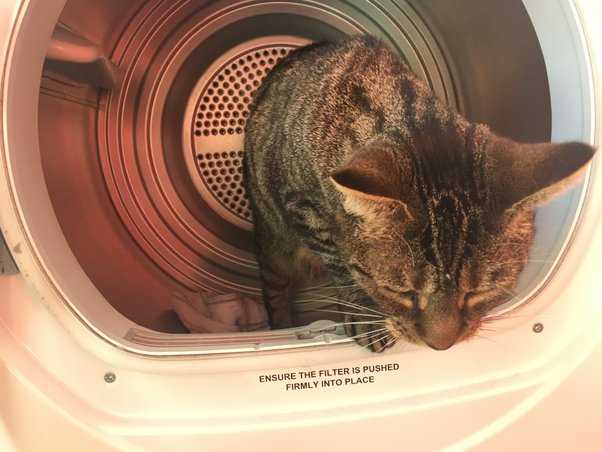
There are several historical reasons why washing machines are usually found in the kitchen in the UK.
1. Limited Space
In the past, houses in the UK were smaller and had limited space for appliances. As the kitchen was often the largest room in the house, it made sense to place the washing machine there to maximize space.
2. Plumbing Convenience
Plumbing was another factor that contributed to the placement of washing machines in the kitchen. The kitchen was already equipped with water supply and drainage pipes, making it easier to install the washing machine in this area.
3. Traditional Practice
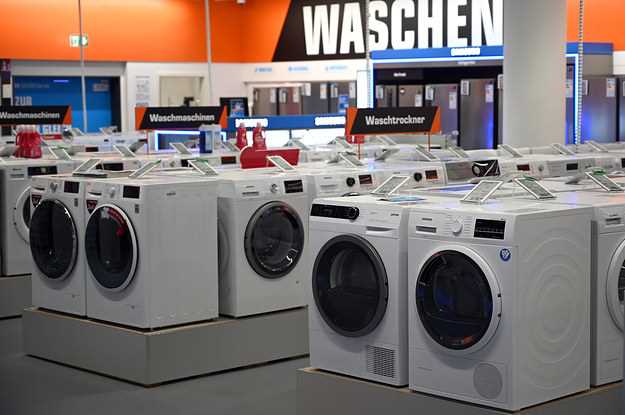
Traditionally, washing clothes was done by hand, and laundry was often done in the kitchen. When washing machines were introduced, it was natural for them to be placed in the same location where laundry activities were traditionally carried out.
4. Social Expectations
Another reason why washing machines are commonly found in the kitchen is societal expectations. In the past, the responsibility of household chores, including laundry, often fell on the women of the house. Placing the washing machine in the kitchen made it more convenient for women to multitask and attend to other kitchen-related tasks while doing laundry.
| Reason | Explanation |
|---|---|
| Limited Space | Smaller houses had limited space for appliances, and the kitchen was often the largest room. |
| Plumbing Convenience | Kitchens were already equipped with water supply and drainage pipes. |
| Traditional Practice | Laundry was traditionally done in the kitchen, so it made sense to place the washing machine there. |
| Social Expectations | Traditionally, women were responsible for household chores, and placing the washing machine in the kitchen allowed for multitasking. |
Plumbing and Utility Connections
When it comes to the placement of washing machines in the kitchen in the UK, one of the key factors is the convenience of plumbing and utility connections. The kitchen is often the most suitable area for these connections due to several reasons.
Water Supply
Washing machines require a water supply in order to function properly. The kitchen typically has a dedicated water supply for washing dishes and cooking, making it an ideal location for the washing machine. This saves homeowners from the hassle and cost of installing additional plumbing connections in other parts of the house.
Drainage
In addition to a water supply, washing machines also need a drainage system to remove dirty water. The kitchen usually has a sink with an existing drainage system, which can be easily extended or modified to accommodate the washing machine. This eliminates the need for complex and costly drainage installations elsewhere in the house.
Utility Connections
The kitchen is often equipped with utility connections, such as electricity and gas, which are necessary for the operation of a washing machine. These connections are usually already present in the kitchen, making it convenient to install and use a washing machine in this area.
Space and Accessibility

The kitchen tends to have sufficient space to accommodate a washing machine, especially with modern kitchen designs that often incorporate laundry facilities. Placing the washing machine in the kitchen allows for easy access and enhances convenience for users, as it is typically located in close proximity to other kitchen appliances and utilities.
Tradition and Cultural Factors
Additionally, the tradition and cultural factors play a role in the placement of washing machines in the kitchen in the UK. Historically, washing clothes was done manually in the kitchen, and this concept has carried over to modern times. While laundry rooms are becoming more popular in contemporary homes, the kitchen remains a common choice due to long-standing traditions.
In conclusion, the placement of washing machines in the kitchen in the UK is primarily influenced by plumbing and utility connections. The presence of water supply, drainage systems, and utility connections, along with the availability of space and accessibility, make the kitchen an ideal location for washing machines. Furthermore, cultural traditions also contribute to this placement choice.
Changing Trends and Modern Solutions
The shift towards utility rooms
In recent years, there has been a noticeable shift in the placement of washing machines in the UK. Increasingly, homeowners are opting to have a separate room dedicated to laundry tasks, commonly known as a utility room. This trend is driven by several factors that have necessitated the need for a dedicated space for laundry activities.
Firstly, as households have become bigger and busier, the need for more efficient and convenient laundry solutions has arisen. The utility room provides a dedicated space where laundry tasks can be efficiently managed without cluttering the kitchen or other living areas.
Secondly, modern washing machines have become larger and more advanced, requiring additional space for installation and maintenance. Utility rooms provide the necessary space to accommodate these larger appliances comfortably.
The advantages of utility rooms
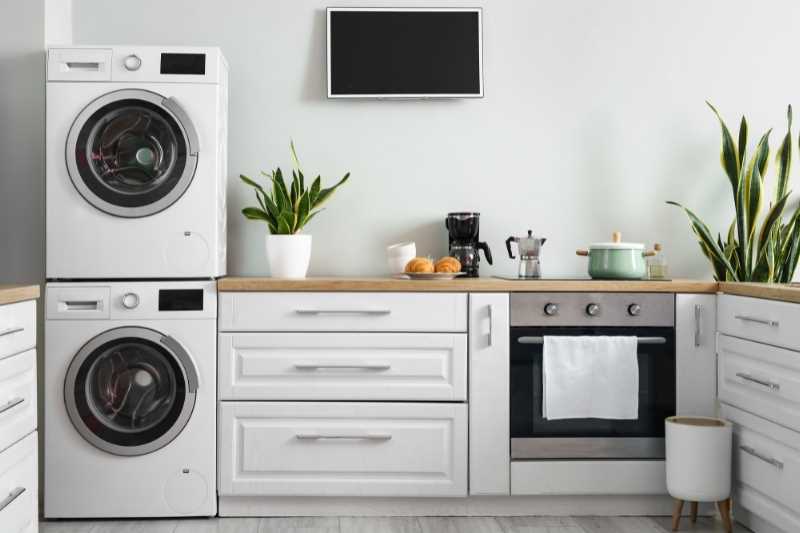
Utility rooms offer several advantages over placing washing machines in the kitchen:
- Space management: Utility rooms are designed to optimize space usage, allowing homeowners to efficiently manage laundry tasks without compromising the functionality of other living areas.
- Noise reduction: Washing machines can generate considerable noise during operation. By relocating them to a utility room, homeowners can reduce the noise levels in the kitchen and other living spaces, creating a quieter and more peaceful environment.
- Organization: Utility rooms are equipped with storage solutions such as shelves and cabinets, allowing for better organization of laundry supplies and accessories.
Integrated solutions
With the rise in demand for separate utility rooms, manufacturers have responded by offering integrated solutions that seamlessly fit into modern homes.
Innovative designs now allow washing machines and dryers to be concealed behind cabinet doors or integrated within custom-made furniture. This integration ensures that the utility room remains aesthetically pleasing while providing all the necessary functionality for laundry tasks.
The future of laundry solutions
As we continue to move towards more modern and efficient living spaces, the placement of washing machines in the UK is likely to further evolve. The utility room trend is set to continue, with homeowners and designers exploring new possibilities for optimizing laundry spaces.
Additionally, advancements in technology are expected to revolutionize the laundry experience. Smart appliances that can be controlled remotely via mobile devices and machines capable of automatically adjusting settings based on fabric type and load size are just some of the exciting developments on the horizon.
Overall, the changing trends and modern solutions surrounding the placement of washing machines in the UK reflect the evolving needs and lifestyles of homeowners, offering greater convenience, efficiency, and aesthetic appeal.
FAQ
Why are washing machines usually located in the kitchen in the UK?
Washing machines are usually located in the kitchen in the UK due to historical reasons and limited space in most homes. In the past, homes in the UK did not have a dedicated laundry room, and the kitchen was the most practical place to install a washing machine. Furthermore, many homes in the UK have smaller floor plans compared to other countries, making it difficult to allocate a separate space for laundry.
Is it common for washing machines to be located in the kitchen in the UK?
Yes, it is very common for washing machines to be located in the kitchen in the UK. It is the traditional and practical choice for most households. Since clothes are typically sorted and ironed in the same area as the washing machine, having it in the kitchen makes the laundry process more convenient.
Are there any disadvantages to having the washing machine in the kitchen?
Having the washing machine in the kitchen can have a few disadvantages. One of the main downsides is the noise. Washing machines can be quite loud, and having it in the kitchen can be inconvenient, especially if the kitchen is a central hub of activity in the home. Additionally, the presence of a washing machine in the kitchen may limit the available counter space or require reconfiguration of the kitchen layout.
Are there any alternatives to having a washing machine in the kitchen in the UK?
Yes, there are alternatives to having a washing machine in the kitchen in the UK. Some homes may have a separate utility room or laundry room where the washing machine is located. In newer homes or home renovations, homeowners may choose to incorporate a dedicated laundry space instead of having the washing machine in the kitchen.
Do all homes in the UK have washing machines in the kitchen?
No, not all homes in the UK have washing machines in the kitchen. Some larger homes or newer constructions may have separate laundry rooms or utility rooms where the washing machine is located. Additionally, in some cases, homeowners may choose to install the washing machine in a different area of the house, such as a bathroom or hallway.














